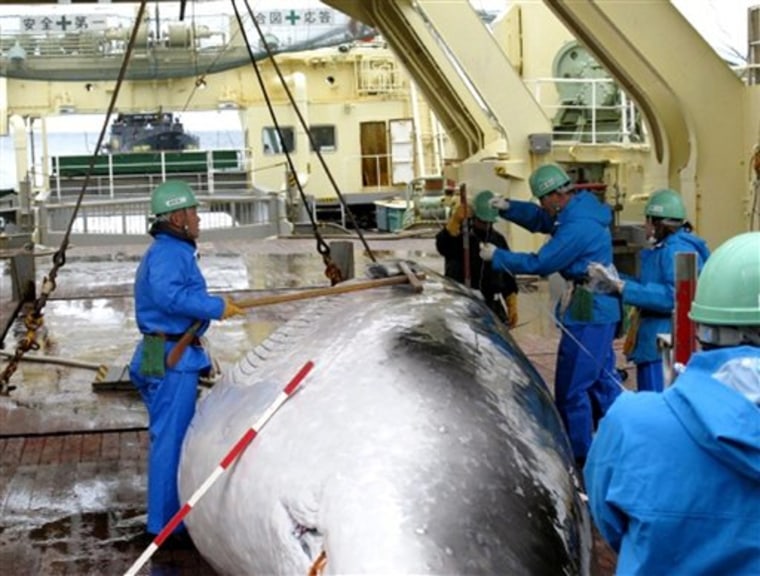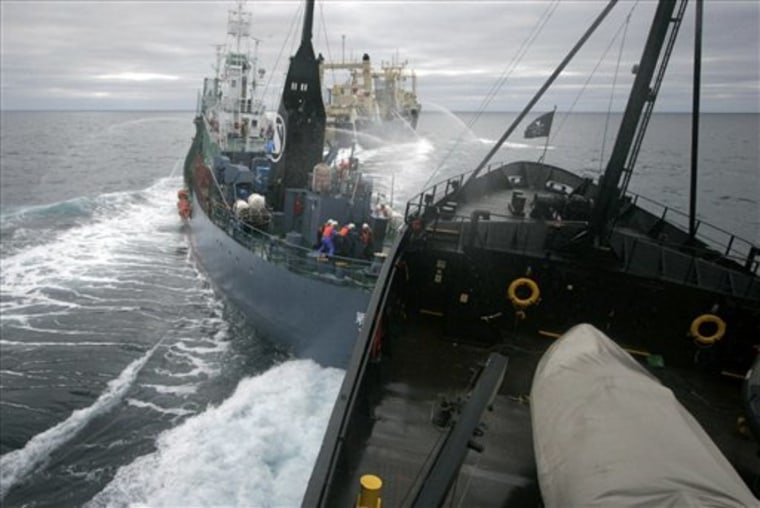Japanese whalers and radical anti-whaling activists trying to stop the hunters from pulling one of their kills out of the Antarctic Ocean collided Friday in an incident Tokyo condemned as "appalling and unforgivable." No one was injured.
Activist Paul Watson of the Sea Shepherd Conservation Society said his boat was chasing the Japanese ship dragging a whale on board when another Japanese boat shot in front of his vessel, causing a collision.
"The situation down here is getting very, very chaotic and very aggressive," Watson told The Associated Press by satellite phone from his boat, named after the late Australian conservationist and TV personality Steve Irwin.
Earlier in the day, Watson said, the Japanese hurled pieces of blubber and whale meat at his ship.
'Blood pouring out'
"We can see the blood pouring out by the barrel," he said as he watched the Japanese haul another whale onto their vessel.
In a statement, the Institute of Cetacean Research — the Japanese government-affiliated organization that oversees the hunt — condemned the protesters' actions, characterizing the collision as a "deliberate ramming" that occurred while the Japanese were trying to load a whale on board one of their ships.
Shigeki Takaya, a Fisheries Agency spokesman for whaling in Japan, called the incident "appalling and unforgivable."
"We will ask concerning countries, including Australia, to immediately stop them from carrying out such horrendous acts," Takaya said.
Japan plans to harvest up to 935 minke whales and 50 fin whales this season. Under International Whaling Commission rules, the mammals may be killed for research but not for commercial purposes. Opponents say the Japanese research expeditions are simply a cover for commercial whaling, which was banned in 1986.
Netherlands urged to intervene
Chiharu Tsuruoka, a Foreign Ministry official in Japan, called Friday's incident between Japan's whalers and the Dutch-registered Steve Irwin "extremely unforgivable."

"We have repeatedly asked the Dutch government to stop them from harassing us, but so far it's been so unsuccessful," Tsuruoka said.
The protesters set off from Australia in early December for the remote and icy Antarctic Ocean, chasing the whaling fleet for about 2,000 miles before stopping two weeks ago in Tasmania to refuel. The group found the whalers again on Sunday and resumed their pursuit.
Watson, who regularly vows to do anything short of deliberately hurting people to stop whalers, said Friday that he and his crew have no plans to turn back — and will continue to chase the whalers until their fuel supplies run out.
More on whaling
